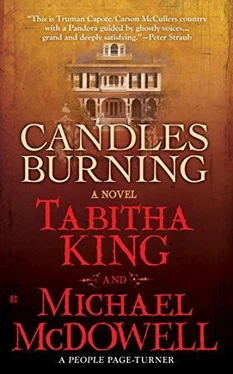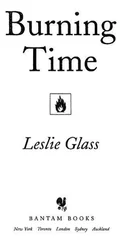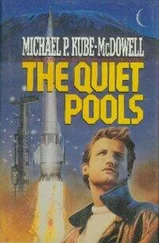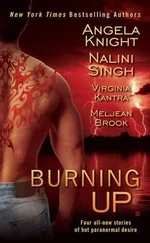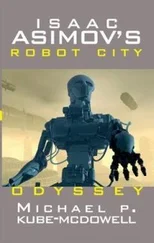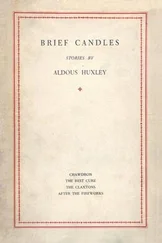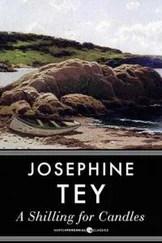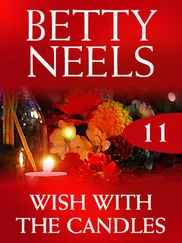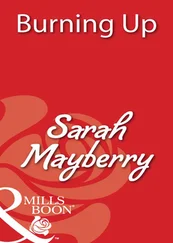The guidebook lay on the dusty wooden floor. I picked it up and put it in my pocket, and when I did, my fingertips encountered the key to the attic.
I drew it out and studied at it. It was a door key, the old-fashioned long-barreled kind, not the stubby key that a padlock would have. I pulled out my oyster knife. One of them was going to open that padlock, or else. I didn’t know what the else might be, but I knew that I was serious about it.
I made a try with the door key. And, of course, it worked. It slid into that padlock like water down a thirsty throat. And I was thinking about water; I was thirsty by then. I turned the key and the padlock let go.
If I failed to actually open the footlocker, Ida Mae was going to speak up or use the guidebook for a megaphone—oh, how stupid I had been; of course that was exactly what the guidebook was, a ghost megaphone.
I bent my knees, unhooked the padlock from the metal tongues of the footlocker, and put my back behind my lifting of the lid of the chest. There was no resistance, only the unhappy shriek of its disused hinges, as it rose and then fell away with my immediate push. I looked down into the trunk, which was filled with neatly banded bundles of money. Sitting on top of the paper money was a silver dollar. Not a bill in a bundle would be dated later than 1958, I was immediately sure: It was the ransom that had not saved Daddy’s life, and the silver dollar appeared to be my very own.
I put my silver dollar in my pocket. Seeing an old wicker laundry basket not far out of reach, I fetched it to the footlocker and emptied the ransom money into it. The hamper was less bulky, less heavy, and I could push it toward the steps, where there was luggage close at hand. After I had done just that, I went back for the candle, my oyster knife, and my guidebook.
By the light of the candle, I filled a well-used good-sized canvas suitcase with the money. I did it without excitement or anxiety. A million dollars was a lot of money back in 1968. Finding the silver dollar on top of it all seemed like a signal that the paper money was mine to dispose of as I wished. It was freedom; I could buy my own education and shed Mrs. Mank, Miz Verlow, and Mama, all in one go.
I closed the suitcase, click-click, and repressed a chortle. Whatever part of me was true-blue Carroll was deeply satisfied for the first time in my life. I felt for the door key. And did not have it, for it was on the floor by the footlocker, still in the open padlock.
Taking my rapidly diminishing candle with me, I turned to go back to the footlocker.
The heat was getting to me. Sweat set on my upper lip and my tongue could not keep up with licking it off. But I did lick at it reflexively, for it wet my mouth and throat. In a few steps, I doubted my direction. It occurred to me that I could die here in the attic, die of thirst or starvation or the heat. But, of course, I would cry out first and be heard. It was only being wrung out by the heat that even made it seem possible. The hell with the key, I told myself, I still had my oyster knife. I would find my way back to the steps and the suitcase.
Long moments later, I had not found my way. I crouched by one of the portholes and sucked at the air coming in through the screen, and berated myself for failing to bring water with me. And breadcrumbs, or white stones, anything to have used for a trail.
The candle’s tiny flame breathed a little larger. It would very soon gutter in its own melted wax.
“I listened to the book,” I said in a mutter. “A fine kettle of fish it’s gotten me into.”
Making myself breathe easy and concentrate, I listened closely, but Ida Mae did not speak. I listened hard enough to hear the babble beneath the water of the Gulf but no voice I knew emerged from it. I slid my fingertips into my overalls pocket to touch Calliope’s locket, half-expecting some magic from it. But there was none, except the skin smoothness of the gold at the tips of my fingers.
Heat rises. Hot as it was on the floor, it was not as hot as it was at my full height. I crawled, awkwardly, what with having to hold the candle in one hand. The book bumped against my flank as if to remind me it was there.
Stopping in a crouch, I put the candle on the floor and took out the book.
As I held it in my hand, it said, speaking again in my own voice:
Point your finger. Follow it.
My forefinger, I thought, the one I burned in a candle flame the Christmas morning when I was seven.
So I stood up, shoved the book back into my pocket, picked up the candleholder with my left hand, and pointed my forefinger. It failed to sting or redden. I turned slowly, until it did. And it did. It felt just as if I was shoving it into the flame of my homemade candle in the cobalt-blue candleholder. A doorbell caw-caw ed far away. The sound came from my pocket, so I knew it was the book.
I moved in the direction that my finger pointed. The way was far from clear. I had to go over low things, and between things, and around things, and then point my finger again until the pain of burning confirmed the direction.
The beams as they sank toward the eaves forced me into a stoop and then a crouch. I could smell dead meat again. Finally I was on my knees, and the footlocker was in sight, against the low wall of the eave. It was not the same one, I told myself. The one that had contained the ransom had had plenty of headroom above it. A padlock was on the floor, open, no key in sight.
The closer I crept to the footlocker, the more the stench gagged me. The tongue of the footlocker hung loose. With one quick movement, I lifted the lid and flung it back. I let myself fall back in reaction to my own forward force, so there was some space between the footlocker and me.
The candle was just at hand. Its flame all but floated on the transparent melt of its wax. Lifting it slowly so as not to smother it by a sudden rush, I drew closer to the footlocker, close enough to hover the candle over the open footlocker. The bottom looked a long way down. The Calley effigy was sprawled there, with Betsy Cane McCall obscenely between her legs.
Unbidden, the thought was suddenly in my mind: I should set the rag doll aflame, and use it for a torch, to spread fire at every corner of the attic. When the house was on fire, someone would unlock the attic door. The rag doll looked up at me with its stony eyes. The flame of the candle raised a light in each one, and a tiny reflection of me. Its eyes pled with me; it so wanted to burn.
Bent over the open footlocker, I lowered the candleholder. A tiny unsteadiness in my hand spilled a clear hot drop of wax upon the rag doll’s face, where it became a cloudy tear splat.
I moved the flame to her hair, which flared at once. The sudden flare of fire stung my hand like a whip. I dropped the candleholder into the footlocker. The hot melted wax spattered over the blackening rag doll, feeding the fire. Sooty black smoke bloomed from the flames. The rag doll writhed. It looked like a blackbird on fire. Poor Betsy Cane McCall blackened and fumed too; as it melted her polyvinyl mouth seemed to gape open, her eyes to widen, until she appeared to be screaming.
I dropped back onto my heels, then jumped up and kicked the footlocker with my bare foot. It felt as if I had busted every toe. But the force of my kick drove the footlocker back against the wall, and the lid dropped down, pinching a billow of smoke into my face. It was nasty and black, that smoke, and I got a mouthful of it that made me cough and wretch.
I crouched nearby, watching the footlocker, to see if it would catch. When it seemed as if at least an hour had gone by, though I knew it was only ten minutes or so, I ventured to open the footlocker again. Of course doing so released another cloud of the foul smoke right into my face. More coughing and gagging, this time until tears ran down my face. I knuckled the tears and smeared wet soot around my face.
Читать дальше
